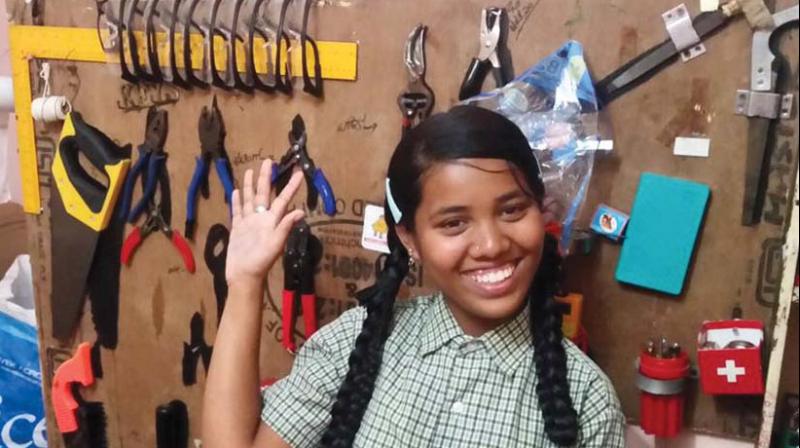Karnataka: Defying classroom norms
The Project has helped set up similar centres in Mangaluru, Bajte and a refugee camp in Uganda.

Bengaluru: One should be able to choose what they want to learn, but unfortunately, our education system does not always allow for an individual to do so, especially in rural areas and underserved communities.
Three years ago, when Abhjit Sinha, a 25-year-old Bengalurean visited the village of Banjarapalya, 30 kilometres away from city, he saw an opportunity to change that.
He, along with his friends Arvind Badrinarayan and Megha Sharma Bhagat, decided to convert a thousand square feet room into a classroom, but unlike the usual ones, this one did not have a teacher. These classrooms were later called Nooks.
Abhijit, a computer engineer, had recently quit his job at an IT firm in the city and was at the village to take some time off. "I used to hang out at the village tea shop during the evenings and used to sip tea and play Temple Run and the kids around would watch me, never daring to talk. One day, they did and it changed everything," he said.
When the children mustered enough courage to speak to him, they asked him if they could touch his smart phone. "Within no time, a child who hadn't touched a phone was playing the game like a pro." On asking around further, he found out that the adults in the village had never used a computer either. "Thirty kilometres away from the IT hub of the country, this was what I found," he said.
The learning centre had no problem getting takers, in spite of it being an alien concept to the village. "I borrowed five laptops from my friends, set up an internet connection, threw in some carpentry tools like hammers and drillers that I had at home and asked those same children to come try. About 5 children came in around the ages of ten and twelve," he said.
Within three hours, no equipment was broken and the kids had figured out for themselves how to play games online and these were kids who didn't even know what the internet was, he added.
Word spread and about sixty people of various age groups wanted to come and make use of the centre. "They had started making projects like vegetable cutters, small motor boats and jewellery from YouTube tutorials and about 60 people started coming everyday and it looked like the centre didn't need me anymore," he laughs.
"Three months later when I went back to check expecting a mess, I was surprised to see more tools than ever. This is how Project DEFY began, that stands for Design Education For Yourself." All the things they made were out of everyday trash and e-waste and these also became a space that consumed waste instead of creating it.
The Project has helped set up similar centres in Mangaluru, Bajte and a refugee camp in Uganda. The next such learning centre is to be set up in Kochi.
Abhijeet said that this centre works best in the most ignored spaces. "The project in Uganda made us see that this model is accepted well in underserved communities. The situation was such that the centre took a very entrepreneurial shape. People from eight different countries who didn't speak to each other started working together making mannequins, shoes and art from trash to sell in the nearby markets."
Project Defy is raising funds for the maintenance of their first centre in Bajrapalya. "While it is easier in acceptance, raising money at such areas is difficult," he said.

